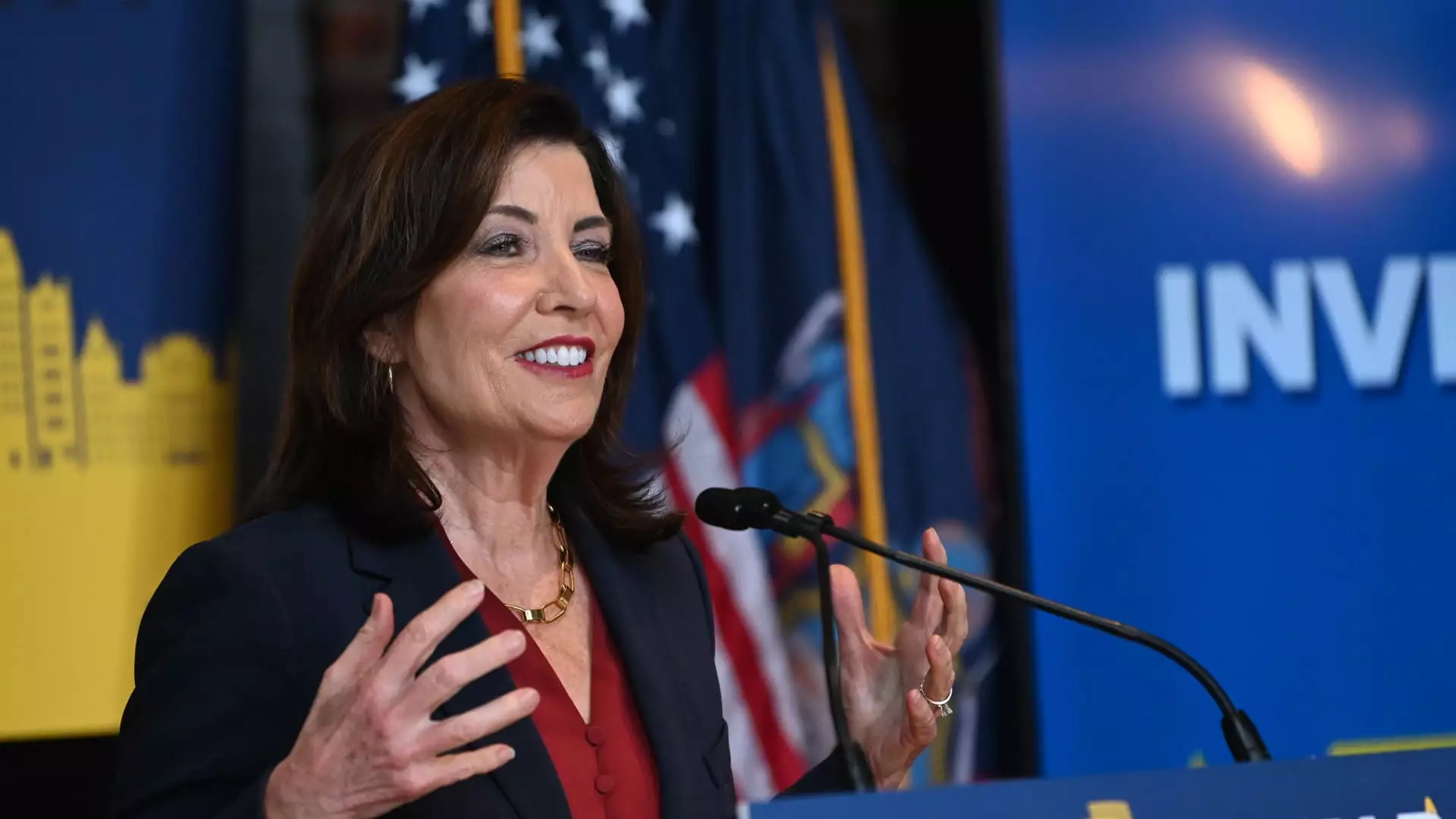In an era where economic strain feels almost omnipresent, New York’s recent announcement of issuing inflation-related rebate checks might seem like a beacon of hope. The state promises to send over 8 million residents up to $400, aiming to cushion the blow of rising sales taxes fueled by inflation. At first glance, this gesture appears compassionate—an acknowledgment of the financial hardships faced by everyday New Yorkers. Yet, beneath this seemingly generous initiative lies a complex web of political opportunism, economic bandaids, and superficial appeasement that could ultimately obscure deeper issues.
The arrangement sounds generous but is fundamentally a band-aid rather than a cure. The checks are distributed automatically, with eligibility based on tax filings from the recent year—no application required. While this hands-off approach seems convenient, it diminishes meaningful engagement with the root causes of economic distress. It suggests that the government’s approach to economic hardship is to throw cash at the problem without addressing structural faults like stagnant wages, affordable housing shortages, or the lasting impact of inflation on low-income workers. In effect, this measure risks being a temporary palliative that masks the need for more profound policy reforms.
The Politicization of Relief—A Strategic Play
Government rebates during inflationary spikes are nothing new; they’ve become a recurring spectacle in the political arena where short-term gains often eclipse systemic solutions. In New York’s case, the timing and scope of this initiative appear more like a political maneuver than a comprehensive strategy. Announced by Governor Kathy Hochul, the refunds serve as a visible demonstration of government responsiveness amid a tumultuous economic climate. Yet, such gestures are often more about garnering voter goodwill than solving structural economic inequalities.
This can be seen as a disingenuous tactic—an image-conscious effort to placate constituents ahead of elections or political scrutiny. The fact that the funds are distributed with minimal oversight or targeted support for the most vulnerable raises questions about who truly benefits from these payments. Are they intended to genuinely improve economic stability, or are they merely a political salve designed to stave off discontent and secure short-term approval? When policymakers prioritize these quick fixes, they risk neglecting real policy reforms needed to make the economy more resilient and equitable in the long run.
Economic Symbiosis or Superficial Band-Aid?
The slight boost in sales taxes resulting from inflation has inadvertently generated extra revenue for the state, enabling this rebate scheme. However, this raises a paradox—are state governments merely reaping windfalls from economic hardships rather than addressing them? The rebate checks are framed as corrective actions for inflation-induced tax increases, but they do little to tackle the root causes of inflation, such as supply chain disruptions, wage stagnation, or corporate profit-maximizing practices.
Furthermore, these refunds do not distinguish between those most affected by inflation and those who are better equipped to weather the storm. Wealthy households, for instance, receive the same relief as lower-income families, which arguably diminishes the program’s equity. It’s an unfortunate reflection of how superficial policies often ignore the societal fissures that underlie economic hardship. The government’s role should be to overhaul structural problems—affordable housing, living wages, universal healthcare—rather than resorting to short-term financial tokens that do little to change the fundamental economic landscape.
A Reflection on the Value of Financial Responsibility
While some experts foster optimism about the utility of these rebates—urging recipients to use the funds for savings or paying down debt—the reality is significantly more complicated. Not everyone has the financial literacy, stability, or means to effectively leverage such windfalls. For many struggling families, these checks might simply cover a few days of essentials, or worse, serve as a reminder of their ongoing economic insecurity.
Personal financial advice encourages prudent use of extra cash, emphasizing emergency funds and debt reduction. Yet, systemic issues like low wages and the rising cost of essentials overshadow individual efforts. For those already in financial distress, a $150-$400 check, while helpful, is an insufficient balm for trauma inflicted by inflation and economic inequality. It underscores the failure of policymakers to design comprehensive safety nets—universal basic income, affordable housing, healthcare reforms—that should underpin any meaningful attempt at economic fairness.
The Real Question: Is Short-Term Relief Enough?
Ultimately, New York’s inflation relief program raises more questions than answers. Is this a genuine effort to combat economic hardship or just a political faç ade? While the checks provide immediate, albeit limited, relief, they fail to confront the systemic issues fueling financial instability. This approach risks creating a cycle where fleeting fixes obscure the necessity for transformative reforms—improvements that would ensure a more just and resilient economy for everyone.
In a broader sense, the initiative exemplifies a pattern across many states: responding to economic pain with quick, targeted payouts rather than addressing the root causes of inflation, inequality, and economic insecurity. For those seeking genuine progress, the question remains—how much longer can policymakers rely on superficial remedies before fundamental change becomes an unavoidable necessity?

